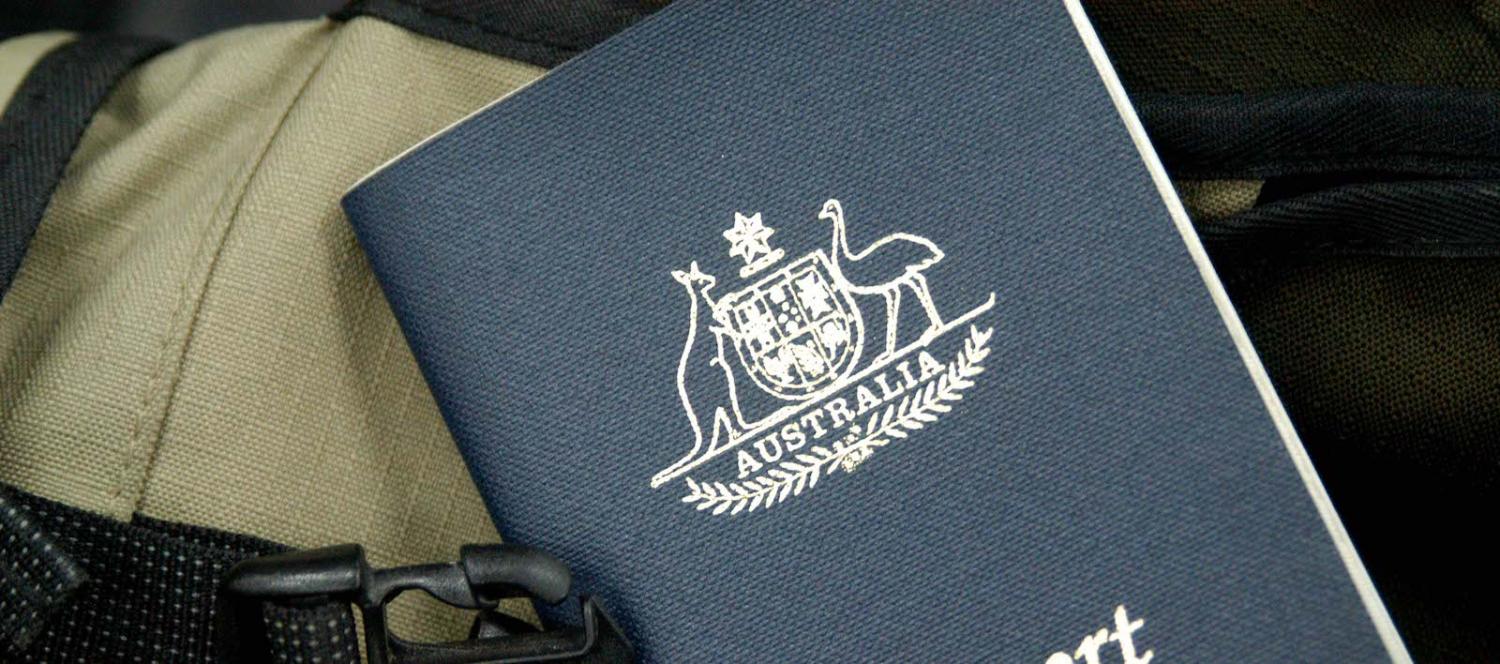In the aftermath of the Bourke Street attack in Melbourne last month, Prime Minister Scott Morrison announced two updates to Australia’s citizenship laws: increasing power to revoke the citizenship of dual nationals, and a period of exclusion from re-entry of foreign fighters returning to Australia.
Peter Dutton has stated that nine dual nationals have had their citizenship revoked due to conflict-related activities in Syria and Iraq.
The first update is designed to increase the scope to revoke the citizenship of dual nationals who perpetrate terrorist acts. This update is being achieved by an amendment to the Australian Citizenship Act 2007. The amendment has passed in the House of Representatives and is due to go to the Senate in the New Year.
When that legislation was last updated to allow for the revocation of citizenship, the provision was largely directed at perpetrators of acts of terrorism overseas or been found to have entered a proscribed conflict zone. Indeed, Home Affairs Minister Peter Dutton has stated that nine dual nationals have had their citizenship revoked due to conflict-related activities in Syria and Iraq.
Now, the minister will have a greater capacity to revoke the citizenship of dual nationals who have perpetrated domestic acts of terrorism. As it currently stands, the law only allows for the revocation of persons who have been convicted terrorism-related offences that have entailed cumulative sentencing of at least six years.
Under the proposed amendment, that six year sentencing will not be relevant. All that will be required is a “relevant terrorism conviction” including “knowingly associating with a terrorist organisation, on multiple occasions, for the purposes of supporting the terrorist organisation.”
The amendment is introduced to the parliament as one that:
Modernises one of the important counter-terrorism tools available to protect the Australian community, ensuring that it continues to be effective in an evolving threat environment.
But there is little evidence that revoking the citizenship of dual nationals reduces the terrorist threat.
Not only does it merely export the problem of foreign fighters to another country: either that which had formerly been the dual nationality of the foreign fighter, the country in which said individual was fighting, or a country closer to home such as Indonesia or the Philippines where ISIS-affiliated groups continue to be active. But revocation of citizenship can be seen as an attack on a member of a minority group, further isolating them or those close to them, pushing them to extremism. Indeed, the International Centre for Counter Terrorism in The Hague has described this tactic as ineffective and counterproductive.
Because the amendments also lessens the obligation to ensure a perpetrator holds a second citizenship, many commentators have expressed concern that the government will be prone to revoking citizenship without due process. Thus, potentially leaving perpetrators stateless and contravening our international legal obligations.
There are, however, significant international legal concerns with the idea of excluding Australian foreign fighters from re-entry for a period of two years. This second update proposed by the Prime Minister is designed to prevent the re-entry of persons who have been to a declared conflict zone, such as the one currently in place in Syria and Iraq. So far, it has not been drafted into a bill and remains under discussion in the cabinet.
It is well documented that ISIS perpetrated war crimes, crimes against humanity and genocide, including the egregious use of sexual violence are notoriously under-prosecuted. As a signatory to the Rome Statute of the International Criminal Court, Australia is obliged to investigate and prosecute alleged perpetrators of these crimes. The exclusion described in these amendments would only make it more difficult to detain such perpetrators for prosecution.
It is surprising, given how much hope has been put in the Rome Statute over the years, that more commentators have not raised this legal obligation. It is true Australia has an obligation to make sure it does not make anyone stateless, but it also has an obligation to investigate and prosecute war crimes, crimes against humanity, and genocide in its own court system.
Both houses of parliament have agreed Australia needs to investigate and prosecute crimes against humanity. In relation to the crimes perpetrated against the Yazidi community, Dutton has himself said the government will support investigation and prosecution of these crimes. The particularly heinous crimes against women that were perpetrated by ISIS also come under the women, peace and security agenda, on which Australia has a whole of government policy.
These crimes aren’t just enshrined in the Rome Statute of the International Criminal Court but are spelled out clearly in Chapter 8 of Australia’s Commonwealth Criminal Code Act 1995. In recent years, the parliament has updated this legislation specifically to ensure that organisations like ISIS would be covered by the crimes. But the crimes continue to go unprosecuted.
Hopefully, cabinet will realise this discrepancy; will prioritise Australia’s obligations under international law to investigate and prosecute war crimes, crimes against humanity, and genocide; and will not pursue the second of the Prime Minister’s two updates.

